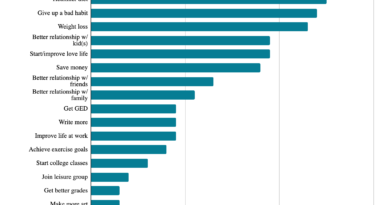Paper Trail Talks Trauma
Our mental health series aims to jumpstart your healing

Trauma may be the most significant common experience among prisoners. Yet, the recent emphasis in our facility that Central California Women’s Facility (CCWF) is becoming trauma-informed doesn’t ring true. Many of us wait months or years to get into a class that addresses healing, and we can’t see mental health counselors on demand.
We hope you’ll use our new mental health mini-series to address your trauma when you’re ready and not when someone else says it’s time. In this section, we’ll review materials available on the tablets and share other tips to inspire and guide your mental health journey.
This month we’re highlighting the Compassion Prison Project (CPP), a nonprofit organization dedicated to helping people heal trauma. It has brilliant video series on Edovo on GTL tablets, “Trauma Talks.” Below, you’ll find a short synopsis of key episodes in the series we hope will encourage you to listen. I guarantee you’ll see yourself reflected and feel the empathy of the featured trauma experts. This is not a complete list; at the time of this writing, more is on the way!
Episode 1: What Is Trauma?
“What we have in prisons are the most traumatized people in our society,” says Fritzi Horstman, founder of the CPP. Witness a Compassion Trauma Circle in a California men’s prison, where the men find healing in discovering their shared experiences.
Trauma differs from common life stressors like paying your bills or caring for family. Learn what abuse, neglect and crises like war do to the brain, body and spirit, and how you can use your own body to start healing.
Episode 2: ACEs
How do our bad childhood experiences affect our brain development? An Adverse Childhood Experience (ACE) is any form of emotional, physical, or sexual abuse or neglect.
On average, people have one to three ACEs, while about 64% of prisoners have more than six. Through video-chats with successful former prisoners, Horstman shifts our focus away from “What’s wrong with you” toward the question we really need to ask: “What happened to you?”
Episode 3: Symptoms of Trauma
See exactly what happens when you’re triggered, and why you’re “never too old or too broken” to learn to process your emotions. Learn from revealing interviews with Valley State Prison residents by Dr. Nadine Burke-Harris, California Surgeon General.
Bonus! Try the relaxing, traumainformed yoga session at the end to learn how yoga teaches you to sit with your darkest feelings and emotions and make your pain tolerable.
Episode 4: The Wisdom of Trauma
“The Wisdom of Trauma” is a don’t-miss short film. You may feel your own shame or bad feelings slipping away and hope fluttering in. Canadian physician and author Dr. Gabor Maté has dedicated his life to helping people develop the empathy and insight they lost to trauma.
Our traumatized brains disconnect us because it’s too painful to be ourselves. We turn to addictions to escape that pain but relief never lasts. Maté says, “When I see human faces I see beauty, I see suffering… and I see enormous potential for transcendence. Our job as human beings is to learn from our suffering.”
Episode 5: Developmental Trauma
Explore the direct link between childhood trauma and how you develop. Most of us resorted to survival mode to avoid being hit or abused, or soothe our own stress. This hindered our social-emotional development and made us anxious, fearful, hypervigilant, distrusting, and lonely.
Good news — we can heal for real. “Neuroplasticity” makes our brains adaptable and fixable!
Episode 6: Attachment Theory
What leads us to dysfunctional relationships with friends, family, intimate partners, and others? How we were parented shapes whether we relate to others in a secure and loving way.
It’s never too late to learn to have healthy relationships and heal yourself, even become a positive example for others.
Episode 7: Traumatic Brain Injury
Prisoners are generally blamed for their bad choices and behavior. Dr. Daniel Amen, CEO of Amen Clinics, offers a different, scientific perspective. Dr. Amen’s brain scans of prisoners reveal that 50-80% of residents in men’s prisons, and up to 97% in women’s prisons, have Traumatic Brain Injury (T.B.I.).
Scans show physical abnormalities in brain tissue. T.B.I. significantly increases anger, lack of impulse control, and mental health problems. However, you can repair the damage and change your life!
Episode 8: Violence
Truth or Myth? “Violence is a solution. Sometimes, it’s the only solution.” Myth! This is a distorted belief that’s often learned early in life or taught in the context of war.
Explore why we become mired in a vicious cycle of violence. Dr. Phil Stutz, a psychiatrist who formerly worked in jails on Rikers Island helps famous and non-famous clients get out of the “maze” of “Life’s not fair; I’m not getting what I deserve.”
“Time is fleeting, and we don’t have time for that (B.S.),” Stutz says.
Bonus Episode: Gratitude and Loss
Get your tissue ready for the awardwinning documentary, “Prison Terminal: The Last Days of Private Jack Hall,” about a World War II veteran dying in hospice in Iowa State Prison. Despite massive war trauma, Hall shows how being grateful rewires your brain so you feel happier.
Bonus Episode: Shaka Senghor
Shaka Senghor did 19 years in prison, with seven years’ worth in solitary confinement. After release, Senghor rose to corporate success, then dedicated himself to criminal justice reform. He is the author of “Writing My Wrongs” and a speaker, teacher, and father.
Oprah Winfrey goes deep with him on second chances, forgiveness, hope, and justice reform. Winfrey discusses frankly how our prison systems need to change.



